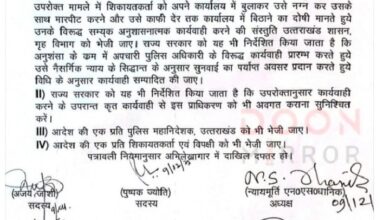Tesla Dreams Big but needs Mega Bucks to fulfil these dreams

Tesla Dreams Big but needs Mega Bucks to fulfil these dreams
By Shubh Arora
After all the hype, Tesla seems to have put its plans to come to India in the near future on hold. Elon Musk was expected to make a high- profile trip to India on April 22 where he would have met the Prime Minister Narendra Modi and was also expected to announce an investment of $ 2-3 billion dollars.
All that came to an abrupt halt when he announced a postponement of his trip due to `heavy obligations’. What were these pressing work commitments that Musk could not take time off for a two- day trip to meet the Prime Minister of a country which offers him a huge market for his Electric Vehicles (EVs)?
Musk may indeed be the richest man in the world but he has been under tremendous pressure of late with Tesla shares having shown a forty per cent downward trend in the last few months. He is locked in fierce competition with Chinese cars forcing him to announce price reductions of three of his five models being sold in the US, and then going on to slash prices of his cars being sold in China, the Middle East, Africa and Europe. But the price cut did not result in an increase in car sales.Tesla cars have always been on the expensive side. Even the cheapest car being sold in the US costs $ 42,000 (Rs 34.5 lakhs). If this vehicle was to be imported in India, a 100 per cent duty would raise its price to $ 80,000 (65 lakh) making it unaffordable except for the very wealthy. The price cuts did not materialise in increased sales and Tesla’s global vehicle inventory rose to 28 days this quarter, a huge increase from the 15 days at the end of the last quarter. Tesla sells cars directly to customers having done away with the dealer network. He can console himself with the knowledge that other new vehicle inventories in the US are now having to deal with a 72- day quarter.
But troubles come in bucketfuls. Last Friday, Tesla had to recall all 3878 cybertrucks because the US safety regulator authorities found it suffered from a faulty accelerator pedal. Not only did this recall carry with it a loss of reputation but correcting these accelerator pedals is going to cause a further dip in his pockets.
Tesla is facing another major problem and that is what direction should the company take in the coming years. Should it go in for a robotaxi or else focus on a more affordable $25,000 model car called Model 2 that Musk had promised would go in for production by the year end. Most investors believe Model 2 is the route Musk should take in order to become more competitive, a step that will also help infuse confidence in his customers but Musk, with his propensity to take risks, seems to have set his heart on a robotaxi even though he realises only too well that this is an unknownterritory and several braveheart companies including Uber chose to withdraw from this autonomous vehicle unit sector following a fatal collision of their vehicle with a pedestrian. Licenses in this field are being held up in the US because of accidents caused by these vehicles with federal agencies no longer will to go soft on these new technologies which include Full Self Driving.
What then does Musk bring to the Indian table and how will his cars help transform the Indian market? India already has a strong auto component industry with Tesla sourcing components worth $1.5 to $2 billion from India annually. Tesla EV cars have a very big driving range most Tesla cars will offer more than 500-700 km driving range so the main concern of Range Anxiety among EV owners in India will be addressed with Tesla cars.
Tesla’s entry into India is ridden by the question of whether he will set up his own manufacturing unit. Unlike several US companies that have outsourced production to China, Musk companies are producing car Lithium-Ion Batteries in his giga-factory facility in Nevada and other locations in US.
Automobile analysts in India believe if he can find a way to localise battery production in India, he will change the rules of the game for the premium market section of EVs as there is a potential for a Rs 25 to Rs 30 lakh car to do well in the Indian market.
Musk needs to set up a manufacturing facility either in India or South Korea in order to take advantage of being a cost leader in this global electrification journey. At present he has six manufacturing facilities with four in the US and one in Shanghai and one in Berlin. The Indian government in its policy for EVs has mandated that he will get 50 per cent domestic value addition within 5 years at the maximum to qualify for the lower import duty rate of 15 per cent.
Companies that meet these requirements will be allowed to import 8000 EVs a year at the lower import duty on cars costing $ 35,000 and above. At present India levies a tax of 70 to 100 per cent on imported cars depending on their value. But to qualify for that he will have to make a sizeable investment first in India.
A potential Tesla entry in India will pit his car against domestic automakers including Tata and Mahindra. Tata has a head start with its vehicles presently cornering 80 per cent of the domestic EV market. Global manufacturers so far believed that India was not ready for world class technology and hence were selling their hand me down technology to us. This would change with the entry of Tesla.
India is presently the fourth largest car market in the world having sold 23 million cars in 2023 and it is growing at a rapid rate. In order to combat climate change, the Indian government is pushing to increase EV penetration so that by 2030 it becomes 40 per cent for buses, 30 per cent for private cars, 70 per cent for commercial vehicles and 80 per cent for two wheelers.
There is no doubt that India poses multiple challenges for Telsa since its remains a small luxury car market which has still to expand its base in a major way. The only way it can do so is by localising production in order to make its cars more affordable as this alone will pave the way for higher sales.
India is also an important market for Musk’s social media platform X. With the country in the grips of the Lok Sabha election fever, the social media platform is tried to skirt away from being involved in major controversies unlike during the 2019 elections. Musk is also making a major push for Starlink, a project run by his company Space X which aims to offer high speed internet using a constellation of thousands of earth orbit satellites. He has applied for a license and if he gets it, his will become the third company after Jio satellite Communications and One Web to get this license.
But all these ambitious projects need a green signal from his investors in the US and that for Musk remains a major challenge. The future lies in green energy but investment in renewable energy sources requires mega bucks and the harnessing of science-based innovations on a mega scale.Musk has always been a gambler, Will his Indian gamble pay off?





